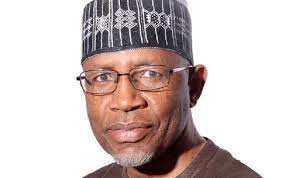The Director-General of the Securities and Exchange Commission (SEC) Nigeria, Mr. Lamido Yuguda, has reiterated the commitment of the executive management of the commission to continue to create awareness, impart knowledge and engender public participation on issues relating to fintech, sustainable finance, financial inclusion and non-interest financing in the country.
Yuguda explained that the effort to sustain support for fintech and the financial system was informed by the disruption of fintech in the financial industry and the need to create an enabling regulatory environment that would ensure a balance between investor protection and technological advancement.
The Director-General pointed out that in furtherance of this objective, the commission would sustain efforts towards developing a comprehensive regulatory framework that ensures that operators in the digital asset space conduct their activities in a manner that protects investors and maintains financial system stability.
According to him, to develop an appropriate regulatory framework for fintech, regulators need to understand the digital asset space to be better positioned to address identified risks.
Yuguda assured: “The SEC will continue to monitor developments in the digital asset space and further engage/collaborate with all critical stakeholders, including the CBN, to create a regulatory structure that enhances economic development while promoting a safe, innovative and transparent capital market.
“We believe that fintech would not only bring about efficiency to the capital market but would also serve as a veritable tool for advancing Nigeria’s Financial Inclusion agenda. However, there is a need to develop an appropriate regulatory framework to ensure the safety of innovation to investors and preserve market integrity”, he added.
The capital market regulator explained that commission’s approach is consistent with global best practice standards and cited the standard in the United States of America, where the US SEC requires platforms that offer to trade in digital asset securities and operate as exchanges to register or seek to be exempted from registration.
Commenting on practices in other climes, the Director-General clarified: “In the United Kingdom, the Financial Conduct Authority (FCA) requires firms that carry on specified activities, by way of business, involving a crypto asset, to be authorized. Crypto assets are viewed as financial products in South Africa and the Financial Sector Conduct Authority (FSCA) requires persons carrying out associated activities to be regulated.
“In Malaysia, operators of digital asset platforms are required to be approved by the Securities Commission (SC) as recognized market operators. Several other securities regulators have taken similar positions”, he added.
Yuguda explained that at the moment, crypto exchanges didn’t have access to the banking platform that is needed to drive their trades in Nigeria, saying that in its drive to implement the revised 10-year capital market master plan, the Commission is looking at digital assets that will really protect investors.






